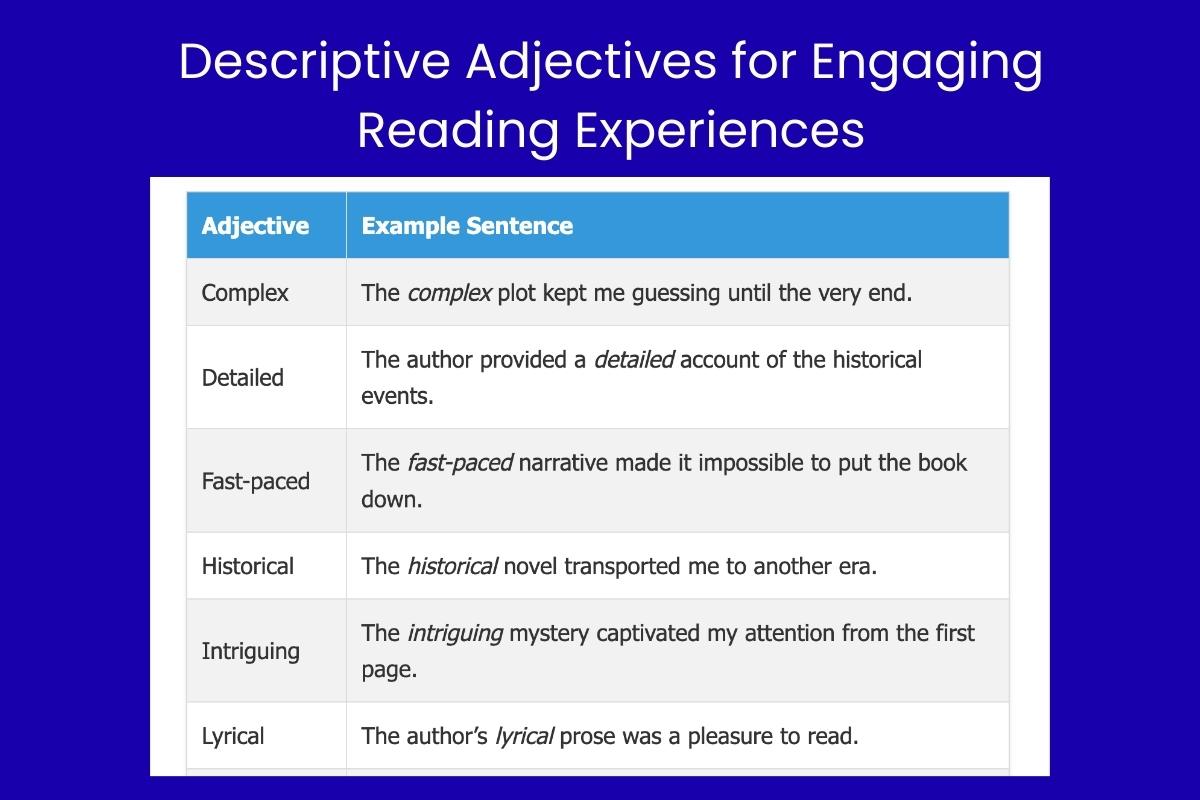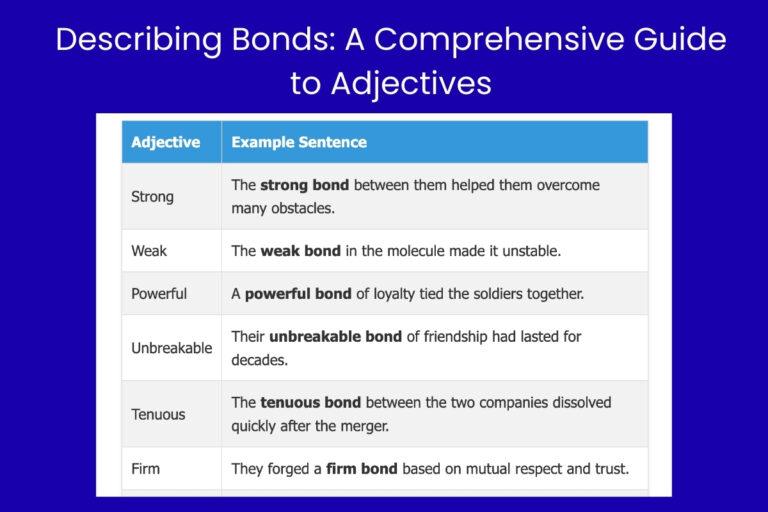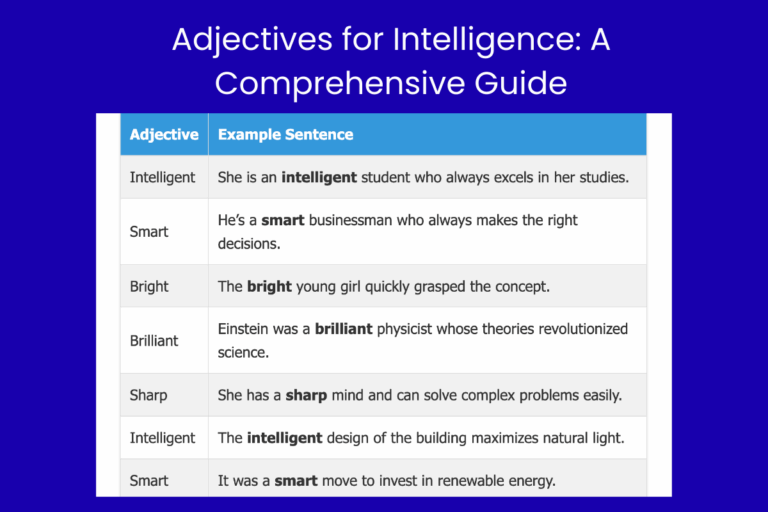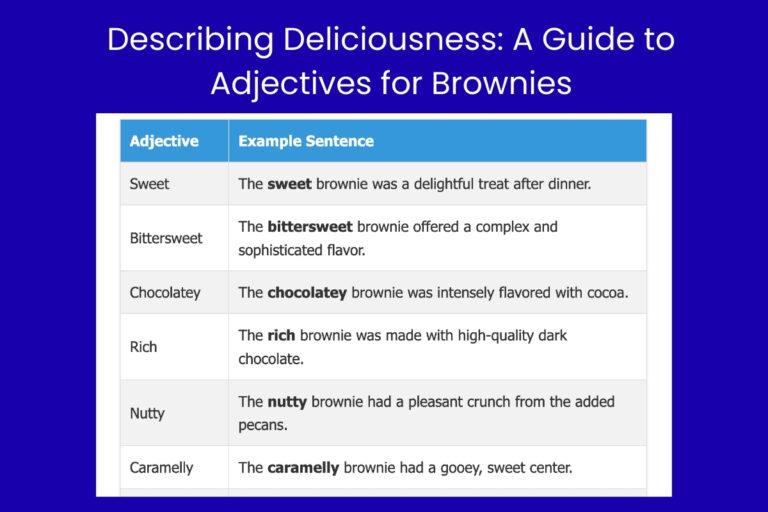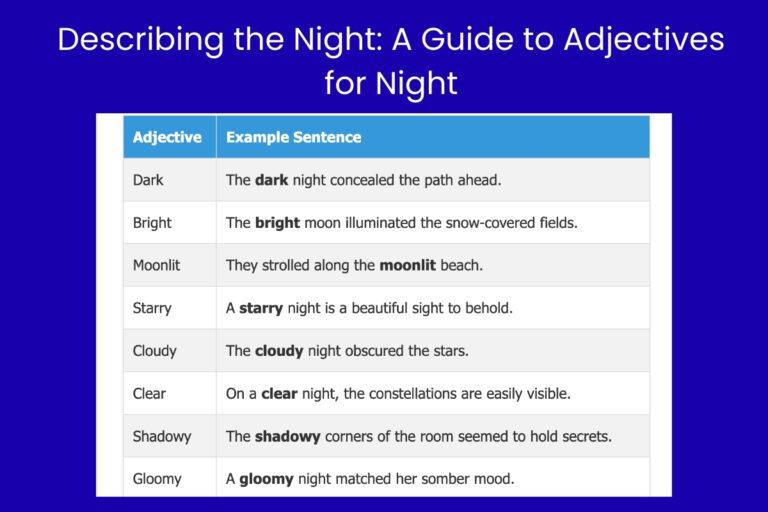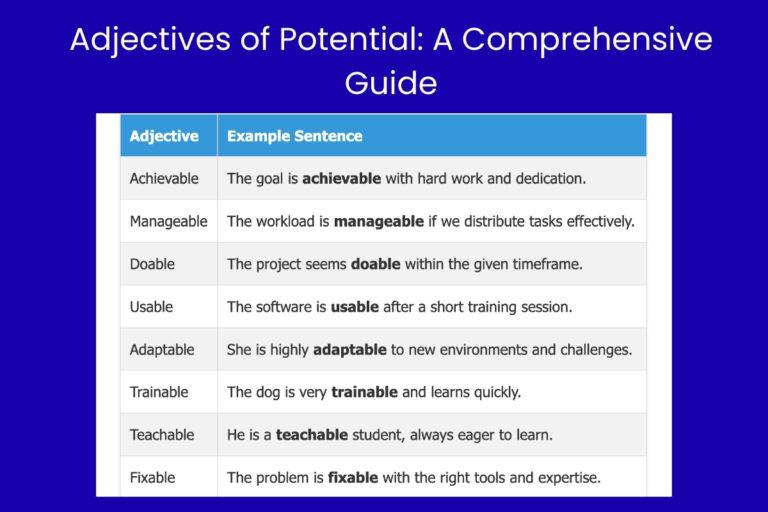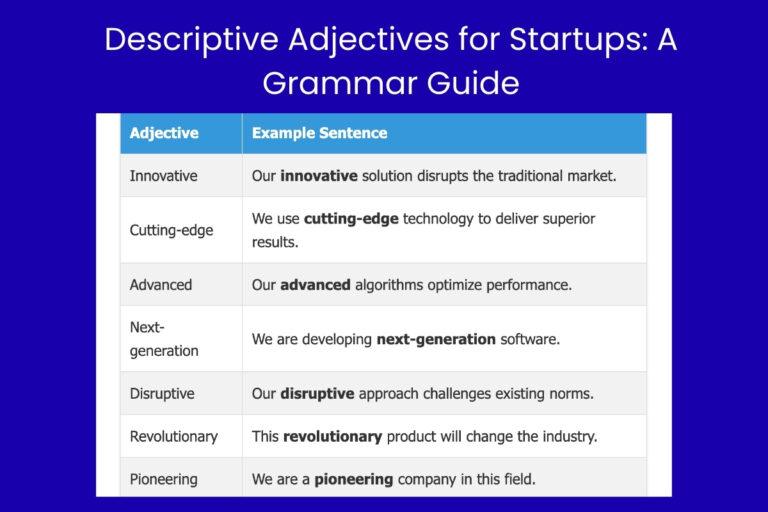Descriptive Adjectives for Engaging Reading Experiences
Adjectives are the vibrant colors of language, and when it comes to reading, they play a crucial role in painting vivid pictures in our minds. Understanding how to use descriptive adjectives effectively can transform a mundane sentence into an immersive experience. This article delves into the world of adjectives specifically tailored for describing reading experiences, exploring their function, structure, types, and usage. Whether you’re an English language learner, a student aiming to improve your writing, or simply a book lover wanting to articulate your thoughts more eloquently, this guide will equip you with the tools to enrich your reading discussions and analyses.
This exploration will cover everything from basic definitions to advanced applications, ensuring a comprehensive understanding of how adjectives enhance our ability to describe and appreciate literature. By the end of this article, you’ll not only recognize these adjectives but also confidently incorporate them into your own vocabulary, elevating both your reading comprehension and your expressive capabilities.
Table of Contents
- Definition of Adjectives for Reading
- Structural Breakdown
- Types of Adjectives for Reading
- Examples of Adjectives for Reading
- Usage Rules
- Common Mistakes
- Practice Exercises
- Advanced Topics
- FAQ
- Conclusion
Definition of Adjectives for Reading
Adjectives are words that modify nouns or pronouns, providing additional information about their qualities, characteristics, or attributes. When we talk about “adjectives for reading,” we specifically refer to adjectives used to describe aspects related to the act of reading, the content of books, or the feelings and experiences associated with reading. These adjectives enrich our descriptions, making them more vivid and precise.
In the context of reading, adjectives can describe a wide range of things. They can characterize the writing style (e.g., lyrical, concise, verbose), the plot (e.g., suspenseful, intricate, predictable), the characters (e.g., complex, relatable, enigmatic), or the overall experience of reading (e.g., immersive, enjoyable, thought-provoking). The primary function of these adjectives is to provide a more nuanced understanding and appreciation of the text.
Adjectives for reading are crucial for book reviews, literary analysis, and casual discussions about books. They allow readers to articulate their opinions and feelings more effectively, enhancing communication and fostering a deeper engagement with literature. They also help readers to recommend books to others by providing specific and informative descriptions.
Structural Breakdown
The structure of adjectives in English grammar is relatively straightforward. They typically precede the noun they modify (e.g., “interesting book”) but can also follow a linking verb (e.g., “The book is interesting“). Understanding these structural patterns is essential for using adjectives correctly and effectively.
Attributive Adjectives: These adjectives come before the noun they modify. For example, in the phrase “captivating story,” the adjective “captivating” directly precedes and modifies the noun “story.” This is the most common placement for adjectives in English.
Predicative Adjectives: These adjectives follow a linking verb (such as be, seem, become, appear) and describe the subject of the sentence. For example, in the sentence “The novel is absorbing,” the adjective “absorbing” follows the linking verb “is” and describes the noun “novel.”
Adjectives can also be modified by adverbs to further refine their meaning. For instance, in the phrase “incredibly insightful,” the adverb “incredibly” intensifies the adjective “insightful,” providing a more precise description. This combination of adverbs and adjectives allows for a greater degree of expression and detail.
Furthermore, adjectives can be part of adjective phrases, which include the adjective and any modifiers or complements that further describe the noun. For example, “extremely well-written” is an adjective phrase where “extremely” modifies “well-written,” which in turn modifies the noun it describes.
Types of Adjectives for Reading
There are several categories of adjectives that are particularly useful for describing reading experiences. Each category focuses on different aspects of the text or the reader’s interaction with it.
Descriptive Adjectives
Descriptive adjectives provide factual information about the qualities or characteristics of a book. They often relate to the plot, characters, setting, or writing style. These adjectives help to paint a clear picture of what the book is like.
Examples of descriptive adjectives include: complex, detailed, fast-paced, historical, intriguing, lyrical, realistic, suspenseful, vivid, and well-written. These adjectives provide objective details that help readers understand the nature of the book.
Evaluative Adjectives
Evaluative adjectives express an opinion or judgment about the quality of the book. They reflect the reader’s assessment of the text’s merits and shortcomings. These adjectives are subjective and convey the reader’s personal evaluation.
Examples of evaluative adjectives include: amazing, brilliant, disappointing, enjoyable, excellent, memorable, outstanding, poor, remarkable, and terrible. These adjectives reveal the reader’s overall impression of the book.
Emotional Adjectives
Emotional adjectives describe the feelings or emotions evoked by the book. They reflect the reader’s emotional response to the story, characters, or themes. These adjectives capture the emotional impact of the reading experience.
Examples of emotional adjectives include: captivating, comforting, disturbing, emotional, inspiring, moving, poignant, sad, thrilling, and uplifting. These adjectives convey the emotions that the book elicited in the reader.
Experiential Adjectives
Experiential adjectives describe the overall experience of reading the book. They capture the reader’s subjective impression of the reading process and its impact on their perception and understanding. These adjectives focus on the reader’s personal journey through the text.
Examples of experiential adjectives include: absorbing, challenging, engrossing, immersive, insightful, provocative, rewarding, stimulating, thought-provoking, and transformative. These adjectives reflect the reader’s personal experience and growth as a result of reading the book.
Comparative and Superlative Adjectives
Comparative adjectives are used to compare two things, usually using the suffix “-er” or the word “more.” For example, “This book was more interesting than the last one I read.”
Superlative adjectives are used to compare three or more things, indicating the highest or lowest degree of a quality, usually using the suffix “-est” or the word “most.” For example, “That was the most captivating novel I’ve ever encountered.”
Examples of Adjectives for Reading
To further illustrate the use of adjectives for reading, let’s examine several examples categorized by the types discussed above. These examples will demonstrate how adjectives can be used to describe various aspects of books and reading experiences.
Descriptive Adjective Examples
The following table provides examples of descriptive adjectives used in sentences to describe books. These adjectives focus on factual details and characteristics.
| Adjective | Example Sentence |
|---|---|
| Complex | The complex plot kept me guessing until the very end. |
| Detailed | The author provided a detailed account of the historical events. |
| Fast-paced | The fast-paced narrative made it impossible to put the book down. |
| Historical | The historical novel transported me to another era. |
| Intriguing | The intriguing mystery captivated my attention from the first page. |
| Lyrical | The author’s lyrical prose was a pleasure to read. |
| Realistic | The characters felt so realistic that I could relate to their struggles. |
| Suspenseful | The suspenseful atmosphere created a sense of unease throughout the story. |
| Vivid | The vivid descriptions brought the setting to life. |
| Well-written | The well-written novel was a testament to the author’s skill. |
| Descriptive | The book offered a descriptive account of the region’s geography. |
| Lengthy | Despite being a lengthy novel, it held my attention throughout. |
| Thematic | The thematic depth of the book made it a rewarding read. |
| Abstract | The story’s abstract nature required careful interpretation. |
| Modern | The author employed a modern writing style that resonated with young readers. |
| Classic | This book is a classic example of 19th-century literature. |
| Informative | The biography was incredibly informative, providing new insights into the artist’s life. |
| Technical | The technical manual was essential for understanding the machine’s operation. |
| Humorous | The book’s humorous tone made it an enjoyable and lighthearted read. |
| Dark | The novel had a dark and unsettling atmosphere that lingered long after I finished reading. |
| Political | The political commentary in the book sparked many debates among readers. |
| Religious | The religious themes were explored with sensitivity and depth. |
| Biographical | The biographical details provided a fascinating glimpse into the subject’s early life. |
| Educational | The book was highly educational, teaching me a great deal about the topic. |
| Philosophical | The philosophical discussions were both challenging and rewarding. |
Evaluative Adjective Examples
The following table provides examples of evaluative adjectives used in sentences to describe books. These adjectives express personal opinions and judgments.
| Adjective | Example Sentence |
|---|---|
| Amazing | The book was an amazing achievement in storytelling. |
| Brilliant | The author’s brilliant insights made the book a must-read. |
| Disappointing | The ending was disappointing after such a promising start. |
| Enjoyable | The book was an enjoyable way to spend an afternoon. |
| Excellent | The excellent character development made the story compelling. |
| Memorable | The book was a memorable experience that stayed with me long after I finished reading. |
| Outstanding | The author’s outstanding writing skills shone through in every chapter. |
| Poor | The poor editing detracted from the overall reading experience. |
| Remarkable | The book was a remarkable feat of imagination. |
| Terrible | The terrible dialogue made it difficult to connect with the characters. |
| Superb | The author’s use of imagery was superb, creating vivid scenes in my mind. |
| Mediocre | The book was quite mediocre, lacking originality and depth. |
| Impressive | The scope of the research was truly impressive, making the book a valuable resource. |
| Wonderful | The book was a wonderful escape, filled with heartwarming moments. |
| Unremarkable | The plot was unremarkable, following a predictable pattern. |
| Exceptional | Her writing skills were exceptional, setting her apart from other contemporary authors. |
| Sublime | The author’s prose was simply sublime, elevating the story to a higher level. |
| Awful | The book was an awful waste of time, with a convoluted plot and unlikeable characters. |
| Satisfactory | The ending was satisfactory, tying up all the loose ends neatly. |
| Incredible | The author created an incredible world that felt both fantastical and believable. |
| Magnificent | The book was a magnificent work of art, showcasing the author’s talent and vision. |
| Average | The book was just average; nothing particularly stood out or disappointed. |
| Fantastic | The characters were fantastic, each one uniquely developed and memorable. |
| Admirable | The author’s commitment to historical accuracy was admirable. |
| Remarkable | The author’s ability to create suspense was truly remarkable. |
Emotional Adjective Examples
The following table provides examples of emotional adjectives used in sentences to describe books. These adjectives express the feelings and emotions evoked by the reading experience.
| Adjective | Example Sentence |
|---|---|
| Captivating | The captivating story drew me in from the very beginning. |
| Comforting | The book was a comforting read during a difficult time. |
| Disturbing | The disturbing themes left me feeling unsettled. |
| Emotional | The emotional depth of the story brought tears to my eyes. |
| Inspiring | The book was an inspiring tale of resilience and hope. |
| Moving | The moving narrative touched my heart deeply. |
| Poignant | The poignant ending left me with a sense of bittersweetness. |
| Sad | The sad story explored themes of loss and grief. |
| Thrilling | The thrilling plot kept me on the edge of my seat. |
| Uplifting | The book was an uplifting reminder of the power of human connection. |
| Heartwarming | The story was heartwarming, filled with acts of kindness and compassion. |
| Frightening | The book was absolutely frightening, keeping me up all night. |
| Joyful | The story was wonderfully joyful, making me smile from beginning to end. |
| Melancholy | The novel had a melancholy tone, reflecting the characters’ inner turmoil. |
| Enthralling | The author’s writing was enthralling, holding my attention captive. |
| Tearful | The book was a tearful journey, filled with moments of profound sadness. |
| Exhilarating | The adventure was exhilarating, leaving me breathless with excitement. |
| Depressing | The book was so depressing that I had to put it down several times. |
| Hopeful | Despite the challenges, the book remained hopeful, offering a message of perseverance. |
| Tragic | The story had a tragic ending that left me heartbroken. |
| Soothing | The book was a soothing balm for my soul during a stressful time. |
| Nostalgic | Reading the book filled me with nostalgic memories of my childhood. |
| Anxious | The suspenseful plot made me feel constantly anxious about what would happen next. |
| Serene | The book transported me to a serene world, providing a peaceful escape. |
| Empowering | The story was empowering, inspiring me to pursue my dreams. |
Experiential Adjective Examples
The following table provides examples of experiential adjectives used in sentences to describe books. These adjectives focus on the reader’s subjective experience and personal growth.
| Adjective | Example Sentence |
|---|---|
| Absorbing | The book was so absorbing that I lost track of time. |
| Challenging | The challenging text required careful reading and reflection. |
| Engrossing | The engrossing narrative completely captivated my attention. |
| Immersive | The immersive world-building made me feel like I was part of the story. |
| Insightful | The book provided insightful perspectives on human nature. |
| Provocative | The provocative ideas sparked lively discussions among readers. |
| Rewarding | The book was a rewarding experience that enriched my understanding of the world. |
| Stimulating | The stimulating content kept my mind engaged and curious. |
| Thought-provoking | The book was thought-provoking, prompting me to reconsider my beliefs. |
| Transformative | The book was a transformative journey that changed my perspective on life. |
| Enlightening | The book was truly enlightening, shedding light on a complex issue. |
| Fulfilling | Reading the book was a fulfilling experience, leaving me with a sense of accomplishment. |
| Eye-opening | The book was eye-opening, revealing truths I had never considered before. |
| Introspective | The novel encouraged introspective reflection on my own life experiences. |
| Perplexing | The book was perplexing at times, requiring careful analysis and interpretation. |
| Rejuvenating | Reading the book was rejuvenating, offering a fresh perspective on life. |
| Mind-expanding | The book was mind-expanding, introducing me to new ideas and concepts. |
| Clarifying | The book was clarifying, helping me understand a previously confusing topic. |
| Empowering | The book was empowering, giving me the courage to pursue my goals. |
| Enriching | The book was an enriching experience, broadening my understanding of different cultures. |
| Illuminating | The author’s insights were illuminating, providing a new understanding of the subject. |
| Inspiring | The story was truly inspiring, motivating me to make positive changes in my life. |
| Moving | The book was profoundly moving, leaving a lasting impact on my heart and mind. |
| Unforgettable | The reading experience was unforgettable, creating lasting memories. |
| Deep | The book was deep and demanded I think about its themes and ideas long after I finished reading. |
Usage Rules
Using adjectives correctly involves understanding their placement, agreement, and modification. Here are some key rules to keep in mind:
- Placement: As mentioned earlier, adjectives usually precede the noun they modify (attributive position) or follow a linking verb (predicative position).
- Order of Adjectives: When using multiple adjectives, there is a general order to follow: opinion, size, age, shape, color, origin, material, and purpose. For example: “a beautiful (opinion) large (size) old (age) round (shape) red (color) Italian (origin) leather (material) reading (purpose) chair.”
- Agreement: In English, adjectives do not change form to agree with the noun they modify in terms of number or gender.
- Modification: Adjectives can be modified by adverbs to intensify or qualify their meaning. For example: “extremely enjoyable,” “somewhat challenging.”
- Coordinate Adjectives: When using two or more adjectives of equal importance to describe a noun, separate them with a comma. For example: “The book was long, detailed, and informative.” If the adjectives are not coordinate (i.e., one modifies the combination of the others), do not use a comma: “a dark, mysterious novel” (dark modifies the mysterious novel).
Common Mistakes
Even experienced writers can make mistakes when using adjectives. Here are some common errors to avoid:
| Incorrect | Correct | Explanation |
|---|---|---|
| The book was more better than the movie. | The book was better than the movie. | Avoid using “more” with adjectives that already have a comparative form (“-er”). |
| This is the most unique book I’ve ever read. | This is a unique book I’ve ever read. | “Unique” means one of a kind, so it cannot be “most” something. |
| The story was very much emotional. | The story was very emotional. | Use “very” to modify adjectives directly. “Much” is typically used with verbs or uncountable nouns. |
| A interesting book. | An interesting book. | Use “an” before adjectives that begin with a vowel sound. |
| The book was good, but the movie was gooder. | The book was good, but the movie was better. | “Gooder” is not a correct comparative form; the correct form is “better.” |
| The most tallest building. | The tallest building. | Avoid using “most” with adjectives that already have a superlative form (“-est”). |
| The book was enjoyable and I learned a lot. | The book was enjoyable and informative. | Replace the second clause with an adjective that directly describes the book. |
| The book was fast and it was paced. | The book was fast-paced. | Combine two related ideas into a single adjective phrase. |
| The author was creatively. | The author was creative. | Use an adjective (“creative”) to describe the author, not an adverb (“creatively”). |
| The book was very unique-est. | The book was very unique. | Avoid double superlatives (using both “very” and “-est” with “unique”). |
Practice Exercises
Test your understanding of adjectives for reading with these exercises. Identify the types of adjectives used and use them correctly in your own sentences.
Exercise 1: Identify the Adjective Type
Identify whether the underlined adjective is Descriptive (D), Evaluative (E), Emotional (Em), or Experiential (Ex).
| Sentence | Adjective Type |
|---|---|
| The historical novel transported me to another era. | |
| The book was an amazing achievement in storytelling. | |
| The thrilling plot kept me on the edge of my seat. | |
| The book was so absorbing that I lost track of time. | |
| The lyrical prose was a pleasure to read. | |
| The ending was disappointing after such a promising start. | |
| The story was deeply moving and impactful. | |
| The novel’s themes were truly thought-provoking. | |
| The fast-paced narrative never slowed down. | |
| The book was a very rewarding experience. |
Answer Key:
| Sentence | Adjective Type |
|---|---|
| The historical novel transported me to another era. | D |
| The book was an amazing achievement in storytelling. | E |
| The thrilling plot kept me on the edge of my seat. | Em |
| The book was so absorbing that I lost track of time. | Ex |
| The lyrical prose was a pleasure to read. | D |
| The ending was disappointing after such a promising start. | E |
| The story was deeply moving and impactful. | Em |
| The novel’s themes were truly thought-provoking. | Ex |
| The fast-paced narrative never slowed down. | D |
| The book was a very rewarding experience. | Ex |
Exercise 2: Fill in the Blanks
Choose the appropriate adjective from the list to complete each sentence: captivating, realistic, brilliant, disturbing, insightful
- The author’s __________ portrayal of family dynamics made the story relatable.
- The __________ plot kept me hooked until the very end.
- The book offered __________ perspectives on the human condition.
- The __________ themes explored the darker side of human nature.
- The author’s __________ writing style was truly impressive.
Answer Key:
- The author’s realistic portrayal of family dynamics made the story relatable.
- The captivating plot kept me hooked until the very end.
- The book offered insightful perspectives on the human condition.
- The disturbing themes explored the darker side of human nature.
- The author’s brilliant writing style was truly impressive.
Exercise 3: Sentence Construction
Write a sentence about a book you have read using each of the following adjectives: memorable, challenging, emotional, vivid, enjoyable
Answer Key: (Example Sentences)
- The book was a memorable experience that I will cherish for years to come.
- The challenging text required me to think critically and expand my understanding.
- The story was deeply emotional, evoking a range of feelings within me.
- The author’s vivid descriptions brought the characters and settings to life.
- The book was an incredibly enjoyable read from start to finish.
Advanced Topics
For advanced learners, consider exploring more nuanced aspects of adjectives for reading, such as:
- Figurative Language: How adjectives contribute to metaphors, similes, and other figures of speech in literary analysis.
- Subjectivity vs. Objectivity: Analyzing how evaluative adjectives reflect personal biases and interpretations.
- Historical Context: Understanding how the meaning and usage of adjectives can change over time.
- Cross-Cultural Comparisons: Examining how different cultures use adjectives to describe literature and reading experiences.
FAQ
- What is the difference between descriptive and evaluative adjectives?
Descriptive adjectives provide factual information about the qualities of a book, such as its plot, characters, or setting. Evaluative adjectives, on the other hand, express an opinion or judgment about the quality of the book, reflecting the reader’s personal assessment.
- How can I improve my use of adjectives in book reviews?
To improve your use of adjectives, focus on being specific and varied in your descriptions. Avoid overusing common adjectives like “good” or “bad.” Instead, try to use more precise and evocative words that capture the unique qualities of the book. Also, pay attention to the context and choose adjectives that accurately reflect your experience and opinion.
- What is the correct order to use multiple adjectives in a sentence?
The general order for multiple adjectives is: opinion, size, age, shape, color, origin, material, and purpose. However, this order is not always rigid, and you can adjust it based on the context and emphasis you want to create.
- Are there any adjectives I should avoid using when describing books?
While there are no strictly “forbidden” adjectives, it’s best to avoid vague or overused words like “good,” “bad,” “interesting,” or “boring.” Instead, opt for more specific and descriptive adjectives that provide a clearer picture of the book’s qualities. Also, avoid using adjectives that are offensive or insensitive.
- How do adjectives contribute to the overall tone of a book review?
Adjectives play a significant role in setting the tone of a book review. By carefully selecting adjectives, you can convey your overall impression of the book, whether it’s positive, negative, or neutral
.
Conclusion
Mastering the use of adjectives for reading can significantly enhance your ability to articulate your thoughts and feelings about books. By understanding the different types of adjectives and how to use them effectively, you can create more vivid, engaging, and insightful descriptions. Whether you are writing a book review, discussing a novel with friends, or simply reflecting on your reading experience, the right adjectives can make all the difference.
Continue to expand your vocabulary and practice using adjectives in various contexts. The more you experiment with different words and phrases, the more confident and expressive you will become. Happy reading and happy writing!
